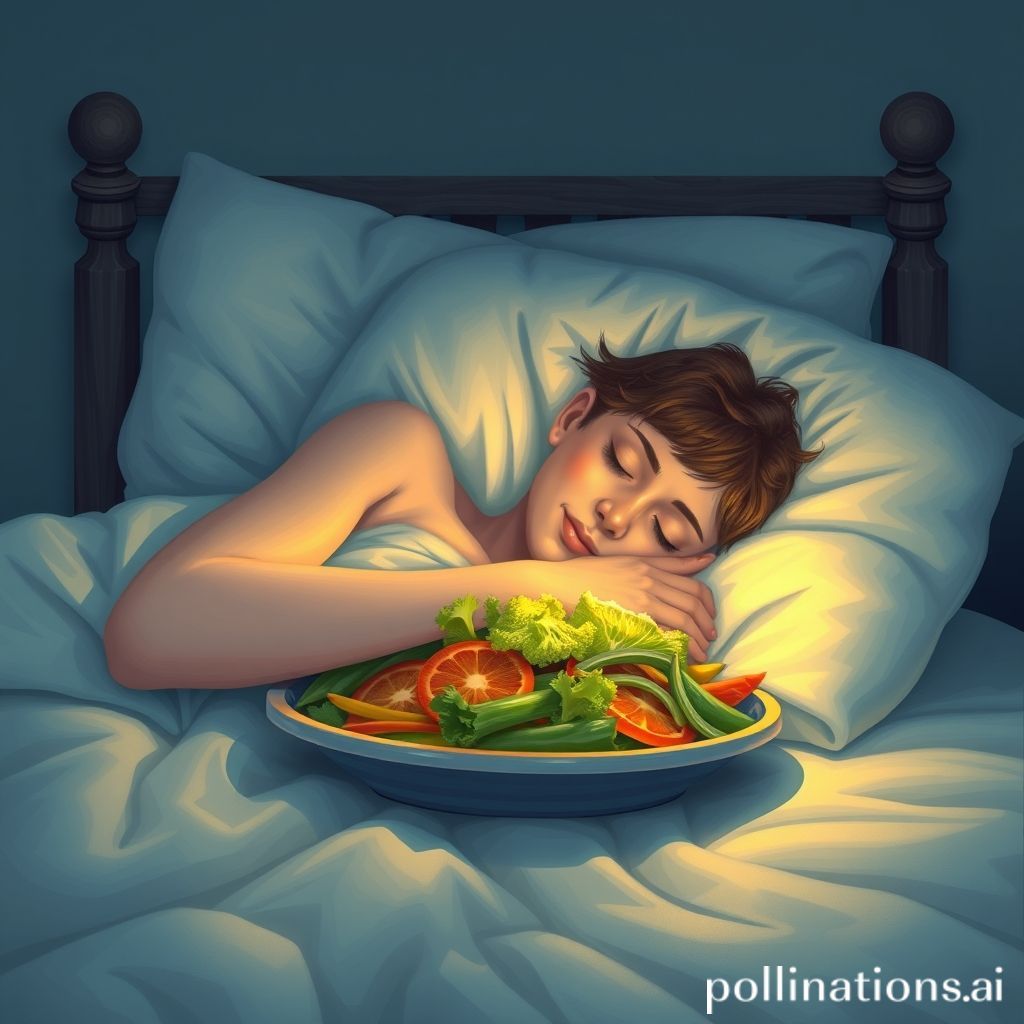
Scientists find ‘remarkable’ diet to defeat insomnia within 24 hours
Sleepless Nights Vanquished? Exploring the Science Behind the "24-Hour Insomnia Diet"
Hey there, fellow sleep strugglers! If you're anything like me, you've spent countless nights tossing and turning, desperately searching for a solution to the dreaded insomnia. You've probably tried everything from warm milk to meditation apps, with varying degrees of success. But what if I told you there's a potential game changer on the horizon? A diet, supposedly capable of banishing insomnia in just 24 hours? Sounds too good to be true, right? Let's dive into what the science actually says about this remarkable claim.
The Buzz About the 24-Hour Insomnia Diet
Recently, a lot of noise has been made about a specific dietary approach promising rapid relief from insomnia. It is often described as the "24-hour insomnia diet". The core principle is to strategically manipulate your food intake to optimize the production of sleep-promoting hormones like melatonin and serotonin.
The general outline of this diet involves:
Morning: Focus on protein-rich foods to boost alertness and regulate your circadian rhythm.
Afternoon: Include complex carbohydrates to help stabilize blood sugar levels and prevent afternoon crashes.
Evening: Prioritize foods rich in tryptophan and melatonin to encourage relaxation and sleep.
But is this just another fleeting trend, or is there genuine scientific backing to this dietary approach?
Decoding the Science: What the Research Says
While the concept of a 24-hour cure for insomnia is definitely attention-grabbing, it's crucial to approach such claims with a healthy dose of skepticism. The reality is that insomnia is a complex condition often rooted in a combination of factors, including stress, anxiety, underlying medical conditions, and poor sleep hygiene.
That being said, there's indeed a growing body of research highlighting the profound impact of diet on sleep quality. Studies have shown that specific nutrients and dietary patterns can influence sleep duration, sleep latency (the time it takes to fall asleep), and overall sleep efficiency.
Tryptophan's Role: Tryptophan, an amino acid found in foods like turkey, nuts, and seeds, is a precursor to serotonin and melatonin. Melatonin, of course, is the hormone that regulates our sleep-wake cycle. Consuming tryptophan-rich foods in the evening might, in theory, promote relaxation and improve sleep onset.
Complex Carbohydrates and Blood Sugar: Stabilizing blood sugar levels is also crucial for sleep. Simple sugars and processed foods can cause rapid spikes and crashes in blood sugar, leading to wakefulness during the night. Complex carbohydrates, found in whole grains, vegetables, and legumes, provide a steady release of glucose, promoting more stable energy levels and potentially better sleep.
Melatonin-Rich Foods: Certain foods naturally contain melatonin, such as tart cherries, walnuts, and bananas. While the amount of melatonin in these foods might be relatively small, incorporating them into your evening routine could contribute to improved sleep.
Comparing Dietary Approaches for Insomnia
To better understand how this "24-hour diet" stacks up against other approaches, let's compare some key aspects:
| Feature | 24-Hour Insomnia Diet (Claimed) | General Sleep Hygiene Diet |
| | | |
| Timeframe | 24 hours | Weeks/Months |
| Focus | Strategic nutrient timing | Consistent healthy eating patterns |
| Evidence Base | Limited direct evidence | Strong evidence for long-term benefits |
| Sustainability | Potentially unsustainable long-term | Sustainable and adaptable |
| Potential Risks | Restrictive diet risks | Minimal risks |
Potential Pitfalls and Considerations
While the principles behind the 24-hour insomnia diet hold some merit, it's important to be aware of potential drawbacks. Insomnia is rarely solved overnight, and a sustainable, long-term approach that addresses underlying causes is usually more effective. Drastically changing your diet for just one day might not address the root of the problem, and could even lead to digestive discomfort or other adverse effects.
Before making significant changes to your diet, especially if you have underlying health conditions or are taking medications, it's always wise to consult with a registered dietitian or healthcare professional. They can help you develop a personalized plan that's safe and effective for your individual needs.
My Takeaway: A Piece of the Puzzle, Not the Whole Solution
So, does this "24-hour insomnia diet" truly work? The jury is still out. While dietary changes can definitely play a role in improving sleep, viewing it as a quick fix might be unrealistic. In my experience, managing insomnia is more like assembling a puzzle. Diet is one important piece, but other factors like stress management, regular exercise, consistent sleep schedule, and a relaxing bedtime routine are equally crucial.
Instead of expecting an overnight miracle, consider incorporating some of the principles of this diet into your overall lifestyle. Focus on eating a balanced diet rich in tryptophan, complex carbohydrates, and melatonin-containing foods. Combine this with other healthy habits, and you might just find yourself enjoying more restful and rejuvenating sleep. Remember, consistency and a holistic approach are key!

0 Comments:
Post a Comment